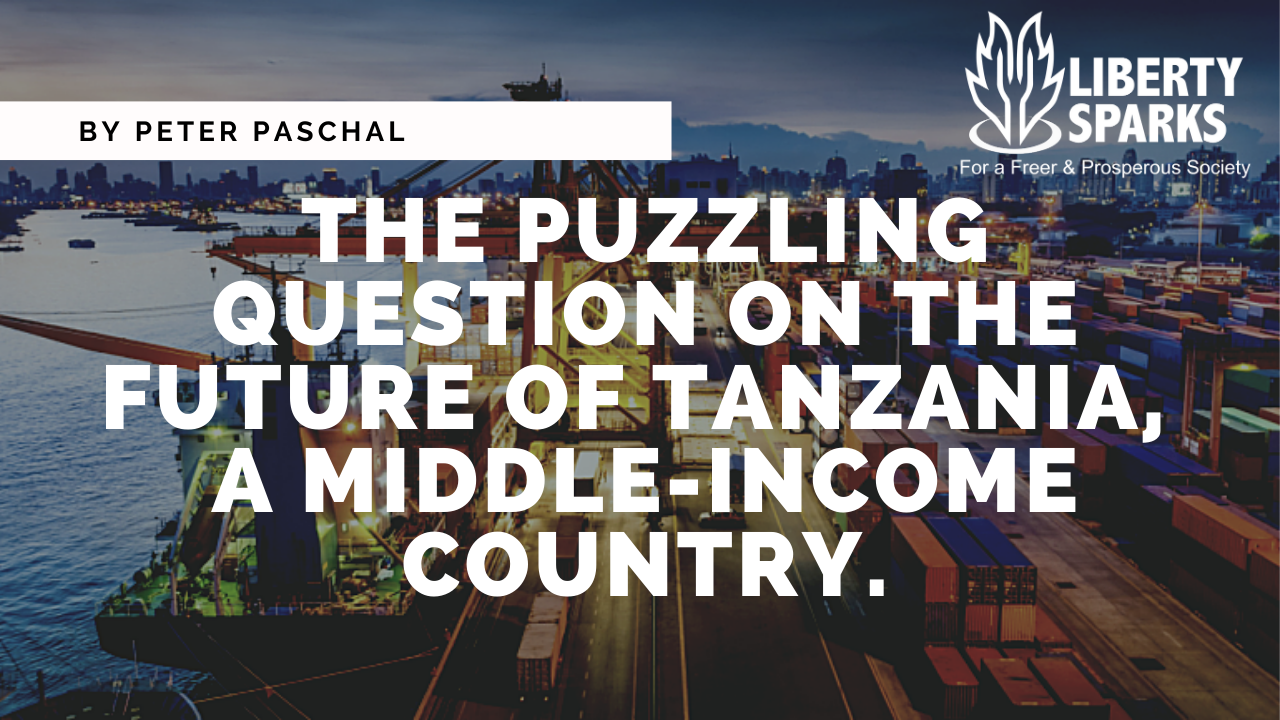
The puzzling question on the future of Tanzania, a middle-income country.
July 01 2020 will remain memorable in the history and mind of Tanzanians following the announcement made by The World Bank officially declaring Tanzania a middle income country from low income country,the declaration which puts Tanzania in the position of the East Africa’s second largest economy after Kenya.
Responding to the World Bank’s announcement Tanzania president John Magufuli tweeted;
‘’we had envisaged achieving this status by 2025 but with strong determination this has been possible in 2020’’.
The Finance and Planning minister Philip Mpango said that the World Bank July 1 announcement has many benefits for the country as it boosts Tanzania’s creditworthiness and expands access to more external loans with fewer strings attached, Mpango added that the announcement will help the government to answer citizens queries on how the loans funds are spent,in his first public statement after the announcement he added that the middle income position will allow the country to break away from shackles of donor dependency plus the accessibility of business loans for financing the national development projects.
Frankly speaking,this is the major move towards economic journey of the national but the puzzling query in the mind of many critics is whether the economic position attained by Tanzania will lead to the U-turn economic policies because of the East African Community-European Union Economic Partnership agreement of which President John Magufuli refused to sign and asked for more time for the region to study the implications on the pact on its manufacturers.
Conceptually ,the economic partnership agreement (EPA)between the European Union and the East Africa Community was a major issue that rose critism and brought two folded opinions among East African Countries during the 20th Heads of state summit in Arusha ,the trade deal between the two blocs were giving EAC products total access to the European market with 82.6 percent of imports from the EU allowed on the EAC market the remaining 17,4 percent of imports from the bloc which were labelled ‘’sensitive’’were largely farm and dairy products and were set to be progressively liberalized within 15 years from the moment the agreement enters into force
So negotiations for the EPA reached to an end on October 16,2014 and all member states and the EU itself signed it,the deadline for signing the contract by EAC countries was set for October 1,2016 but the East African Summit which was then chaired by Tanzania President John Magufuli asked for more time for the region to study the implications of the agreement,it seems some leaders in EAC countries had the doubting factors to the agreement, Tanzania and Burundi had exactly the same opposing stance towards the agreement asserting that the agreement will have serious consequences on revenues and the growth of industries, Uganda rejected signing the agreement on the ground that signing the pact as an individual countries would compromise the unity of the region,On side of Kenya things were opposite since it was influencing its EAC partners to sign the EPA agreement on an individual basis rather than as a bloc to allow those that have not signed to sort out their issues, due to the two folded opinions towards the agreement,economic experts and diplomatic gurus in East Africa warned that signing the agreement as individual countries would weaken the mutual relationship a situation that could distort efforts towards regional integration, finally the summit decided to allow Tanzania four months to brainstorm in order to see whether the agreement is beneficial to them,the secret behind Kenya,s support toward signing the agreement was because by the time it was already a middle-income country so without signing the contract it would have to start paying duty for its exports to Europe the point to remember is that Kenya exports mainly flowers and horticultural products, as Kenya remained firm in not signing the contract European Union decided to raise duty to Kenya exports from 8.5 percent up to more than 30 percent,within a couple of weeks Kenya suffered worse effects as the results and it had no option than to sign the EPA agreement as an individual country.
So now Tanzania has entered middle-class economy and without signing the agreement it is supposed to start paying duty for its exports to Europe and as to force the Tanzania action of signing the contract, the European Union can do whatever it takes, who knows may be it can raise the duty of export as it did to Kenya it , so it is still the puzzle whether Tanzania will adopt the agreement or not, so as the country is celebrating the victory it must also think on what to do for the future economic well-being.
By Peter Paschal : [email protected]
[/et_pb_text][/et_pb_column][/et_pb_row][/et_pb_section]Tag:By Peter Paschal



Digital Payment as a Way to Increase the Freedom to Make Payments